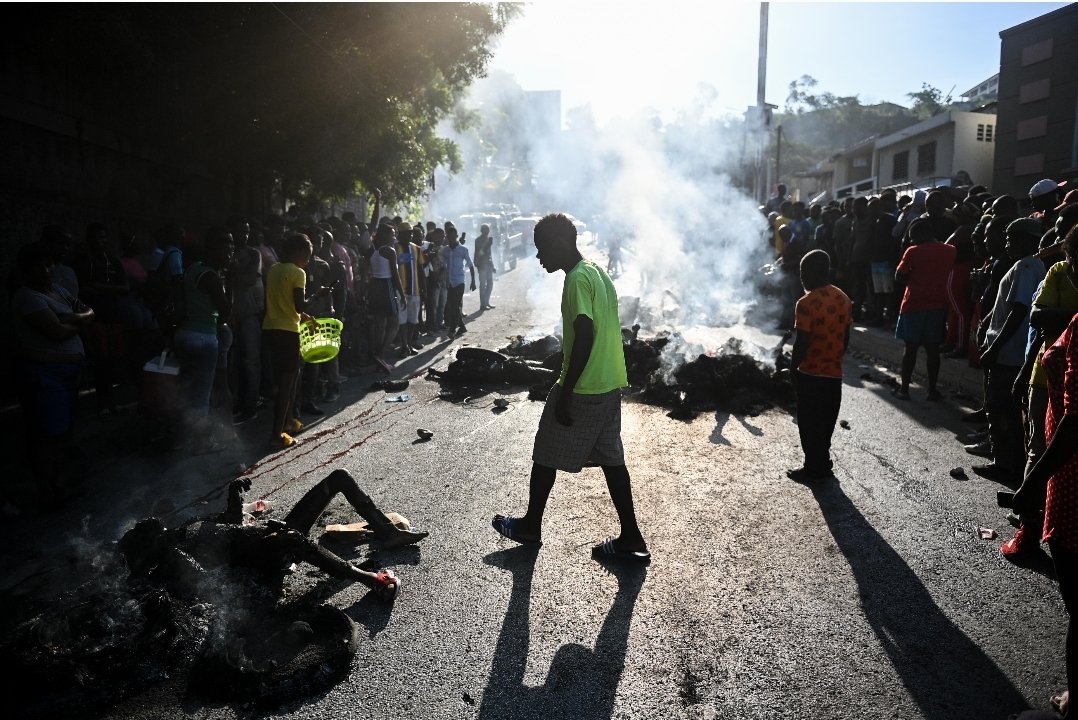The Lynching of Gang Members in Haiti: An Alarming Consequence of Social Disintegration
Yesterday, a horrific incident took place in Canapé Vert, a neighborhood in Port-au-Prince, Haiti, where a mob lynched 14 suspected gang members. The exact details of the incident are still unclear, but it is believed that the police stopped a tap-tap, a small public bus, during a routine check. Upon searching the vehicle, they found that the 14 young male passengers had hidden weapons in their bags, leading to their subsequent arrest. However, a group of angry residents quickly descended on the scene and took the men away, after which they were lynched and their bodies were burnt.
Although the initial reaction to this event was one of satisfaction at seeing suspected gang leaders receive their just punishment, we should all be concerned about the broader impact and consequences of vigilantism by lynch mobs on Haitian society. We must also view this lynching in the broader context of the ongoing social disintegration occurring in Haiti. Imagine a time when people cannot move from one neighborhood to another due to the fear of being considered a gang member or informer.
Furthermore, we must consider the potential consequences of the existing power imbalance (capacity for violence) between unarmed citizens and heavily armed gang members. For instance, in February 2023, the residents of Dodard in Gonaives formed a brigade to locate individuals associated with the Savien gang, "Gran Grif." During the search, the citizens discovered and seized boxes of cartridges belonging to the gang. In retaliation, the gang's armed men invaded Dodard that night, killing at least six civilians and injuring several others in Liancourt, Artibonite.
It is crucial to acknowledge that the populace's response is driven by a lack of trust in the justice system and a feeling of hopelessness. People are exhausted from witnessing their loved ones being abducted and murdered, and in the absence of a (fair) judicial system, they are taking matters into their own hands. Nevertheless, vigilantism, or this form of self-defense, is not a solution. The potential consequences of such actions, given the unequal distribution of power(capacity for violence), are particularly frightening.
We must also be as concerned about the broader impact and consequences of vigilantism by lynch mobs on Haitian society as we are about the gangs that are sowing chaos. While it may be tempting to celebrate retributive killings, they will ultimately lead to more violence and suffering. It is our responsibility to advocate for the restoration of justice and the rule of law, which is the only way to bring an end to the violence and suffering that is tearing apart Haitian society.
As tempting as it may be to give in to our darker impulses, we must resist and strive for a more just and peaceful society.


